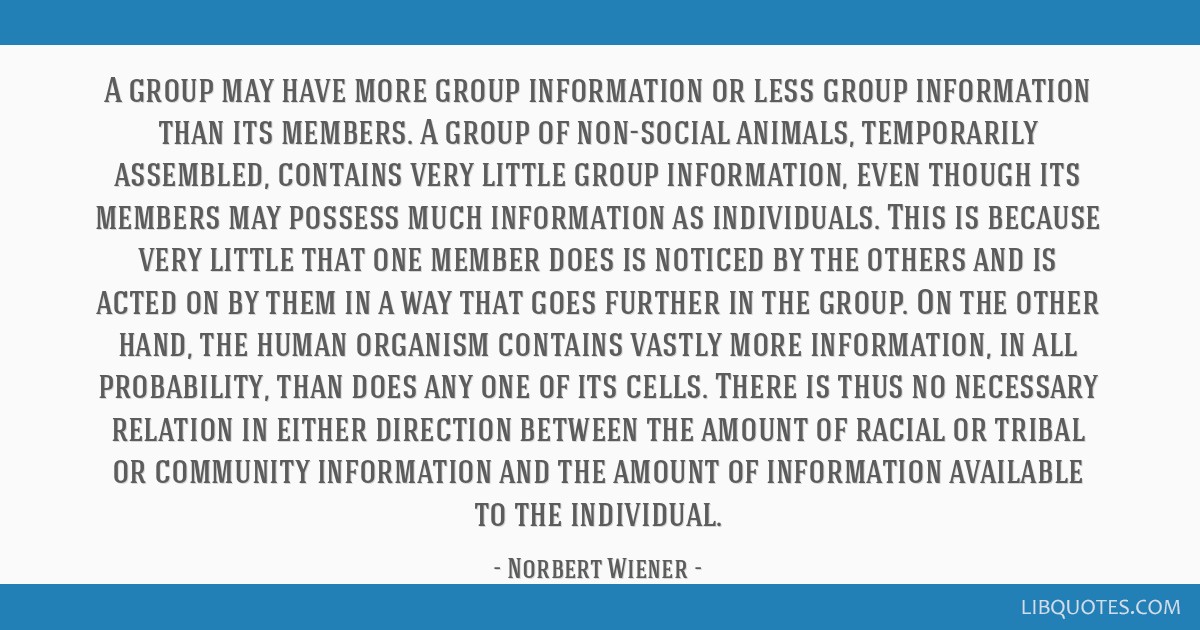A group may have more group information or less group information than its members. A group of non-social animals, temporarily assembled, contains very little group information, even though its members may possess much information as individuals. This is because very little that one member does is noticed by the others and is acted on by them in a way that goes further in the group. On the other hand, the human organism contains vastly more information, in all probability, than does any one of its cells. There is thus no necessary relation in either direction between the amount of racial or tribal or community information and the amount of information available to the individual.
VIII. Information, Language, and Society. p. 158. - Cybernetics: Or Control and Communication in the Animal and the Machine (1948)























